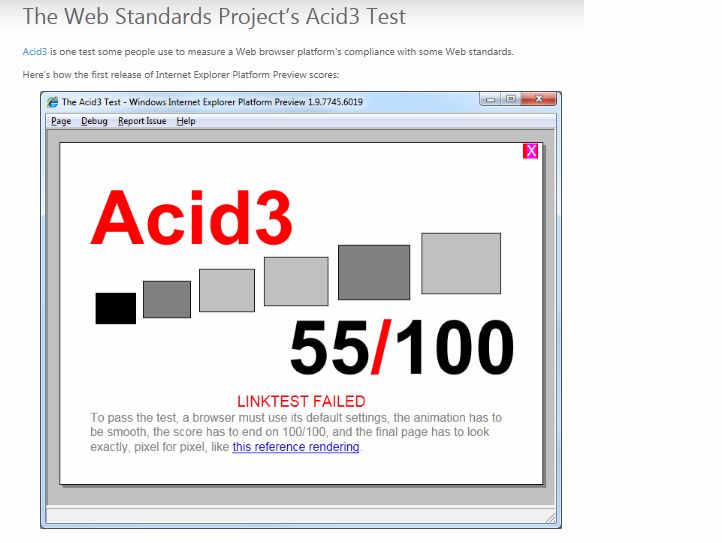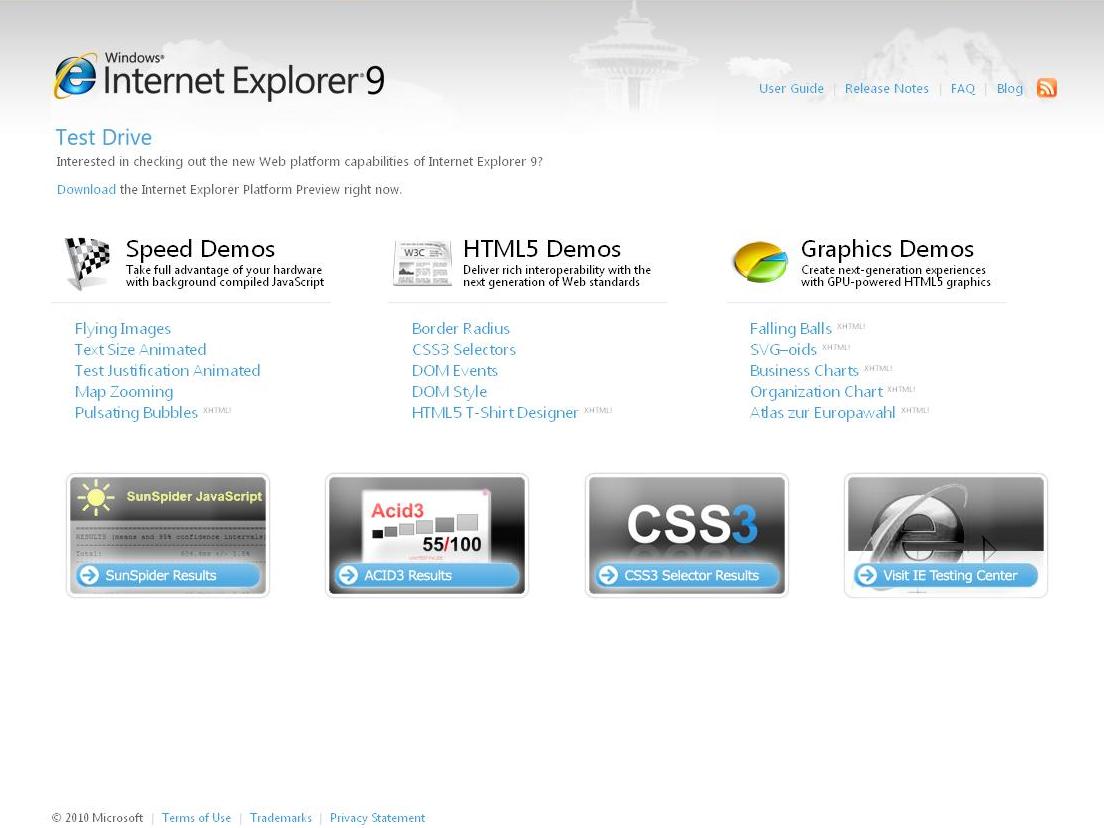Microsoft previews Internet Explorer 9
IE9 test online with HTML5 support and increased speed

We love HTML5, declares Internet Explorer General Manager Dean Hachamovitch. "We love it so much, we want it to actually work."
The preview of IE9 released today at Microsoft's MIX developer conference supports HTML5 – including SVG and the audio tag (video will be in the final release). But it still has some issues with speed, as we'll come onto.
It has the GPU hardware acceleration announced last year at the Professional Developer Conference to improve performance, plus a new JavaScript compiler that takes advantage of dual-core systems.
And it includes hundreds of new interfaces for web developers to let them write HTML5 and CSS 3 in a way that Hachamovitch claims is truly interoperable between browsers.
Today, he says, "The same markup does radically, painfully different things - not just between Internet Explorer and other browsers, but between other browsers and even between different versions of Webkit (the engine that underpins Safari).
"It's not like there's this happy bubble world where everything interoperates and IE is over here; look at all this stuff people have to do to make these other non-IE browsers have rounded corners.
"The promise is that IE9 will do HTML5 in a way that means the same markup can be used between browsers to give the same effect, as long as web designers use code that checks for features and behaviours rather than for specific web browsers.
Get daily insight, inspiration and deals in your inbox
Sign up for breaking news, reviews, opinion, top tech deals, and more.
However, many will point out that IE9 still isn't that quick. Despite what Microsoft might say. "IE 9 is crazy fast," says Principal Program Lead Jason Weber; "so crazy fast we're changing the way you think". IE 9 will be optimised for the ways major Web sites work (based on statistics Microsoft has gathered about the 7,000 Web APIs most commonly used).

It's very different from IE8 under the hood; the graphics engine and the JavaScript engine have been completely rewritten. But the headline stats still don't make great reading for Microsoft, even if the IE9 preview is faster on common tests like Sunspider.
However, Weber justifies the difference between its 604 score and Opera 10.50's 287 as "less than one eye blink". Read on for details of IE9's performance in the Acid 3 test.
Faster JavaScript and fast HTML5
Not only is the JavaScript interpreter faster, but there's a new JavaScript compiler that speeds up scripts without making the browser wait for it to finish dealing with scripts. It then passes them on to the second core on dual core PCs (which Microsoft's statistics say are the majority of systems).
And the rendering engine that actually displays web pages uses the Direct2D hardware graphics acceleration that's in Windows Vista and Windows 7. "We're speeding up the real Web today," says Webber; "we believe we've sped up everything by 10 per cent, 11 per cent".
That's even more important for HTML5 says Hachamovitch; "we've had the opportunity to look through the HTML5 spec and think 'How will this go? How will it stress these systems? How is it going to stress the Internet? What resources will developers need access to? This stuff is really going to need the hardware in ways that HTML apps and Ajax apps don't."
Mary (Twitter, Google+, website) started her career at Future Publishing, saw the AOL meltdown first hand the first time around when she ran the AOL UK computing channel, and she's been a freelance tech writer for over a decade. She's used every version of Windows and Office released, and every smartphone too, but she's still looking for the perfect tablet. Yes, she really does have USB earrings.